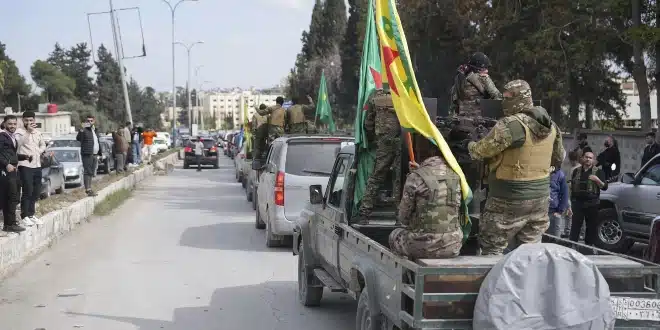On Friday, U.S.-backed Kurdish fighters began withdrawing from two key neighborhoods in the northern Syrian city of Aleppo, marking a pivotal development in Syria’s ongoing political transformation. This move comes as part of a broader agreement between the Kurdish-led authority in northeastern Syria and the Damascus-based central government, which is steadily reasserting its authority across the country.
The fighters pulled out from the neighborhoods of Sheikh Maksoud and Achrafieh—predominantly Kurdish areas that had been under their control for nearly a decade. These districts had remained under Kurdish administration even after government-aligned forces captured the rest of Aleppo in late 2016, and more recently when the new interim government under President Ahmad al-Sharaa took control of both Aleppo and Damascus, ousting the long-standing Assad regime.
The pullout by the Syrian Democratic Forces (SDF), a Kurdish-led and U.S.-supported group, follows the release of dozens of detainees from both sides just a day earlier. Syrian state media confirmed that government forces have now deployed along key roads connecting Aleppo with the Kurdish-administered northeast—territory that comprises nearly a quarter of Syria’s land area east of the Euphrates River.
A Step Toward Integration and Kurdish Recognition
This withdrawal strengthens the implementation of a significant accord reached last month. That deal sets the stage for potential integration of the SDF into the national army and acknowledges longstanding Kurdish demands for cultural and civil rights.
Under the terms of the agreement, Syria’s Kurdish population—long marginalized under the Assad family’s rule—will gain constitutional recognition. The use of the Kurdish language in education and official settings, once strictly prohibited, will now be permitted. Furthermore, thousands of stateless Kurds who were denied citizenship for decades will finally be granted legal recognition.
The pact also facilitates the return of hundreds of thousands of displaced Kurdish citizens who were forced from their homes over the course of Syria’s nearly 14-year civil conflict. Despite their historic grievances, Kurdish leaders emphasize that their goal is not complete independence or the creation of a separate parliament. Instead, they seek decentralized governance, allowing for autonomy in managing their local affairs within a unified Syrian state.
The developments in Aleppo may mark a turning point in the country’s post-conflict reconstruction and political realignment, signaling a possible new chapter of cooperation between the Syrian central government and its Kurdish minority.


